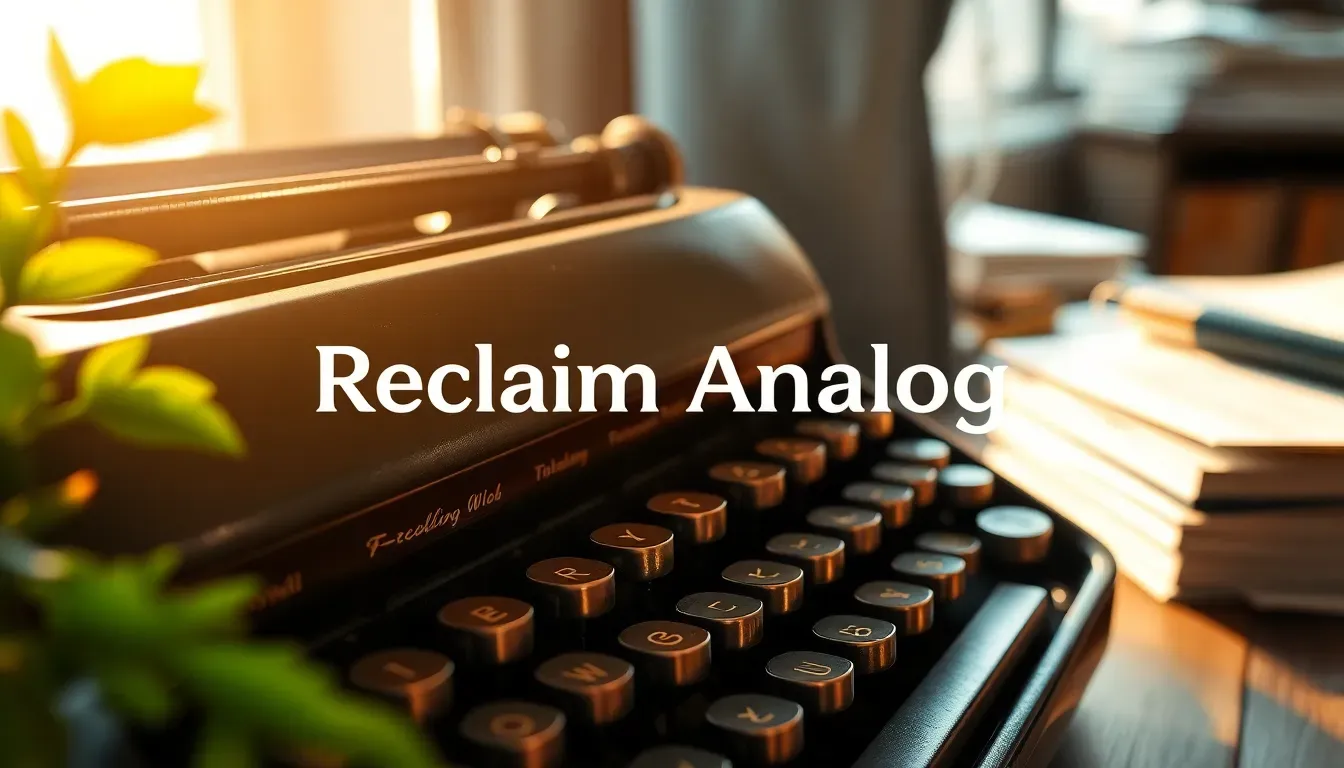The Typewriter’s Ghost in Our AI Machine
We’re surrounded by keyboards that think they’re smarter than us.
Autocomplete. Autocorrect. Auto-everything.
The machines want to finish our sentences before we do. They want to smooth our rough edges and polish our imperfect thoughts into algorithmic perfection.
But something was pure about the typewriter.
Each keystroke was a commitment. Each mistake was permanent. Each word had weight because it couldn’t be undone with a casual backspace.
The typewriter demanded presence. It required you to think before you acted. It taught patience through its unforgiving nature.
Today’s AI writing assistants promise to make us better writers. Faster writers. More efficient writers.
But what if they’re making us worse thinkers?
When every sentence can be endlessly refined, we stop trusting our initial instincts. When every word can be instantly replaced, we become afraid of commitment. When every phrase can be automatically enhanced, we forget how to find our own voice.
The typewriter knew nothing about your intent. It couldn’t guess your next word. It couldn’t suggest a “better” way to express your thought.
It simply waited. Silent. Patient. Neutral.
A pure conduit between mind and page.
This isn’t nostalgia speaking. This is about understanding what we trade when we hand over our writing process to artificial intelligence.
Every time an AI suggests a word, it’s not just offering help. It’s subtly reshaping our thought patterns. Training us to think in ways that align with its statistical models.
The typewriter never tried to make us think like a typewriter.
Perhaps that’s why some writers still keep one around. Not as a primary tool, but as a reminder. A reminder that sometimes the cleanest connection between thought and expression is through imperfect, unassisted human effort.
In our rush to embrace AI’s helping hand, we might be forgetting what it feels like to face the blank page alone.
To hear nothing but the click of keys and the sound of our own thoughts.
To write without a net.
Maybe that’s exactly what we need sometimes – not to write better, but to think clearer.
The typewriter isn’t obsolete.
It’s just waiting for us to remember what it was trying to teach us all along.



